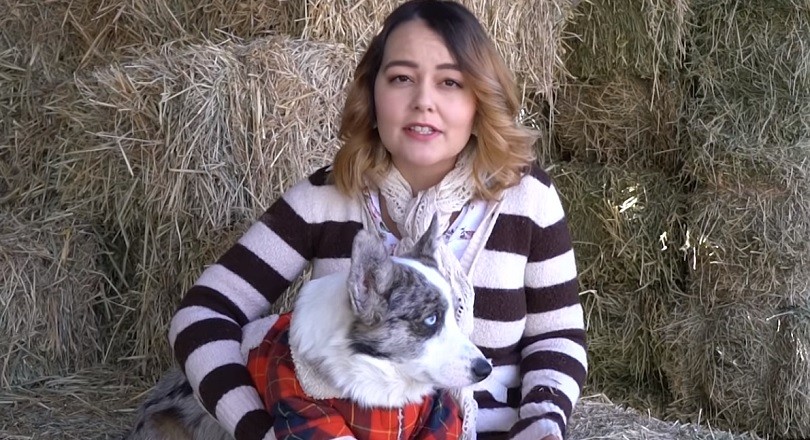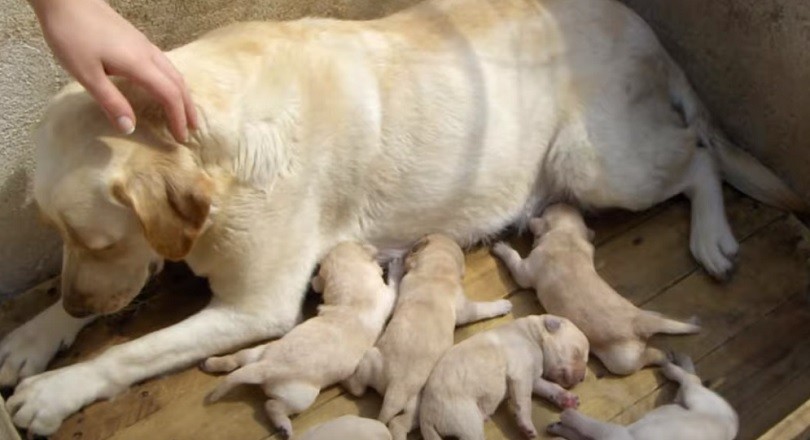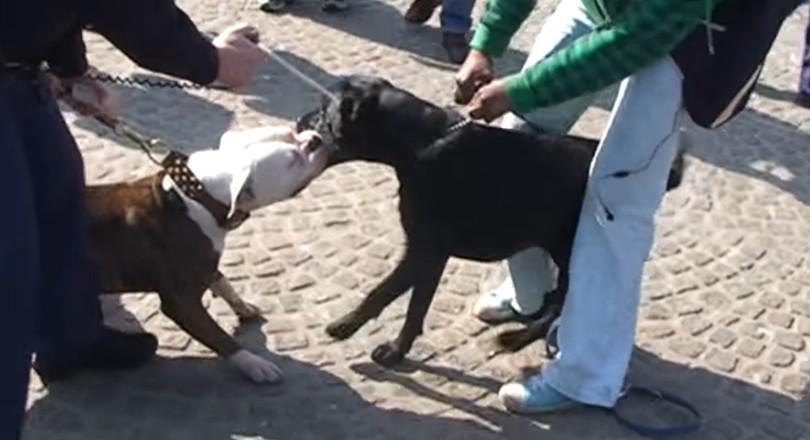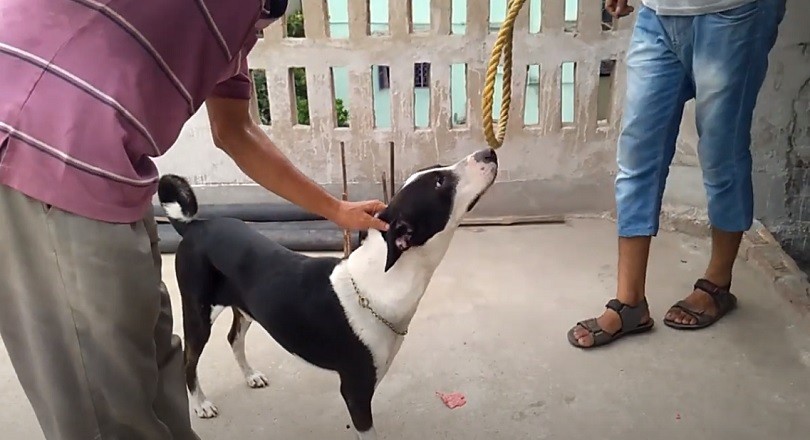Last Updated on February 28, 2025
Dogs do not hibernate in the winter. They remain active throughout the cold months.
Dogs are domesticated animals that have adapted to living alongside humans in various climates. Unlike some animals, dogs do not undergo hibernation. They stay active and maintain their regular routines during the winter. Proper care ensures dogs remain healthy and comfortable even in colder weather.
Providing adequate shelter, warmth, and nutrition is crucial. Regular exercise is also important to keep them fit and happy. Understanding how to care for your dog during winter can help prevent health issues. By meeting their needs, you ensure your furry friend enjoys the season just as much as any other time of the year.
The Myth Of Canine Hibernation
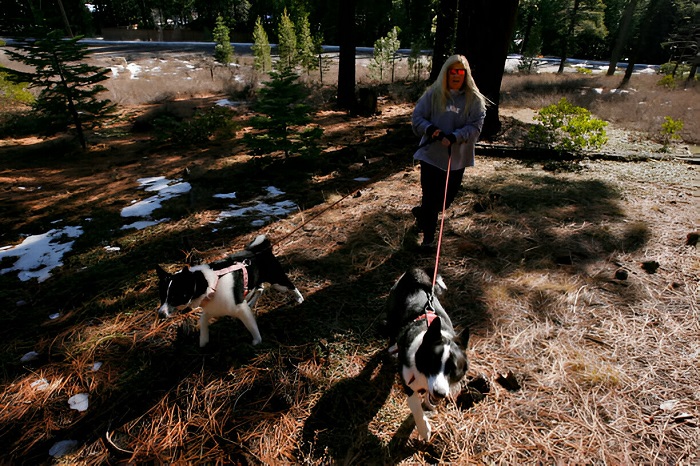
Many people believe that dogs hibernate in winter. This is a common myth. Dogs do not hibernate like bears or other animals. Let’s explore why this myth exists and what the truth is.
Misconceptions About Dogs And Cold Weather
Some think dogs sleep more in winter because of cold weather. They may also see their pets being less active. This leads to the idea that dogs hibernate.
Dogs have thick fur coats that protect them. They do not need to hibernate to stay warm. Most dogs are still active and playful in winter.
Owners might notice their dogs sleeping more. This is often due to shorter days and less sunlight. It does not mean the dog is hibernating.
Biological Differences Between Dogs And True Hibernators
True hibernators, like bears and bats, go into a deep sleep. They lower their body temperature and slow their metabolism. This helps them survive cold months without food.
Dogs cannot do this. Their bodies are not built for hibernation. They need regular food and water, even in winter.
Here is a simple table showing the differences:
| Feature | Dogs | True Hibernators |
|---|---|---|
| Body Temperature | Stays constant | Drops significantly |
| Activity Level | Remains active | Very low or none |
| Food and Water | Needs regularly | Can go without |
Understanding these differences helps debunk the myth of canine hibernation. Dogs are not built to hibernate. They adapt to cold weather in other ways.
How Dogs Respond To Winter
Winter can be a challenging season for many animals. Dogs, however, have unique ways to cope with the cold. Unlike some animals, dogs do not hibernate. Instead, they adapt their behavior and physical responses to stay warm and comfortable.
Adaptations In Canine Behavior
Dogs often change their behavior in winter. They may seek warmer places to rest, such as near heaters or cozy blankets.
- Increased Sleep: Dogs may sleep more to conserve energy.
- Seeking Shelter: They might look for indoor spaces more often.
- Less Outdoor Time: Dogs may spend less time outside due to the cold.
- Burrowing: Some dogs like to burrow under blankets.
Physical Responses To Decreased Temperatures
Dogs also show physical changes in response to colder weather. Their bodies adjust to help them stay warm.
| Physical Response | Description |
|---|---|
| Thicker Fur Coat | Many dogs grow a thicker fur coat in winter. |
| Shivering | Shivering helps generate body heat. |
| Increased Appetite | Dogs may eat more to boost their energy levels. |
Understanding these adaptations can help pet owners provide better care during winter. Keeping an eye on these behaviors ensures dogs stay healthy and warm.
Caring For Your Dog During The Colder Months
Winter can be tough for dogs. They need extra care to stay warm and healthy. Some breeds handle cold better than others. But all dogs need help in winter. Below are tips for keeping your dog safe and happy.
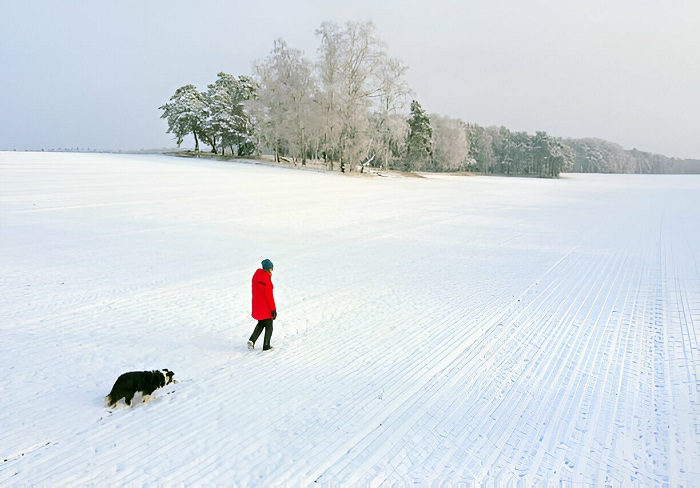
Providing Adequate Shelter And Warmth
Your dog needs a warm place to sleep. If your dog sleeps outside, make sure the doghouse is insulated. Use straw or blankets to keep the space warm. Raise the doghouse off the ground to avoid dampness.
Keep your dog’s bed away from drafts. Place it in a cozy spot in your home. Always dry your dog off after being outside. Wet fur makes dogs colder.
Diet And Exercise Adjustments For Winter
Dogs burn more calories in the cold. They might need more food. Talk to your vet about the right amount. Choose foods rich in protein and fat. This helps your dog stay energized and warm.
Exercise is important, even in winter. Shorten walks if it’s very cold. Consider indoor activities like playing fetch in the house. Keep your dog active to avoid weight gain.
| Winter Care Tips | Details |
|---|---|
| Warm Shelter | Insulate the doghouse and keep it dry. |
| Dry Off | Always dry your dog after being outside. |
| Extra Food | Increase food intake, consult your vet. |
| Short Walks | Limit time outside if it’s very cold. |
| Indoor Play | Engage your dog with indoor activities. |
Frequently Asked Questions
Do Dogs Get Sleepy In The Winter?
Yes, dogs may get sleepier in winter. Shorter days and colder weather can make them more lethargic. Make sure they stay active.
Can Dogs Freeze In The Winter?
Yes, dogs can freeze in winter. Cold temperatures can cause hypothermia and frostbite. Keep them warm and limit outdoor time.
Where Do Dogs Sleep In Winter?
Dogs sleep in warm, cozy places during winter. Indoors, they prefer beds, blankets, or heated mats. Outside, insulated dog houses with bedding keep them warm.
Can A Dog Sleep In a Doghouse In Winter?
Yes, a dog can sleep in a doghouse in winter. Ensure it’s insulated, dry, and has warm bedding.
Do Dogs Hibernate In Winter?
No, dogs do not hibernate. They remain active year-round.
Conclusion
Dogs do not hibernate in the winter. They stay active and enjoy the colder months with proper care. Ensure they have a warm shelter and a balanced diet. Regular exercise is crucial to keeping them healthy and happy. Understanding their needs helps them thrive all year round.

